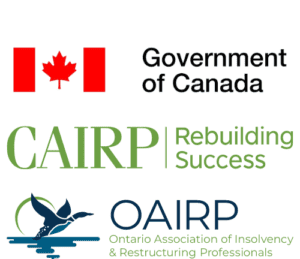If you’re considering a fresh financial start, understanding the process is key. Below are our Bankruptcy Frequently Asked Questions, designed to help you make informed decisions with confidence.
Bankruptcy Frequently Asked Questions
What does it cost to file for bankruptcy?
The cost of bankruptcy differs for each individual as it is based on monthly income, expenses, family size and assets.
Usually the fee is around $1,800 which includes,
- monthly payment of about $200 for 9 months,
- any surplus income payments to be made, and
- assets you keep or lose by filing for bankruptcy
Read more on Costs of Filing for Bankruptcy >

What do I lose in Bankruptcy?
When you file for bankruptcy you are required to surrender;
- any equity in real estate above $10,000
- motor vehicles with a value over $6,000
- any investments, like savings, GIC’s, TFSA’s
- any tax refunds that are owing to you
- RRSP contributions made within the last year
Read more about what you lose in bankruptcy >
How Long Does a Bankruptcy Last?
Usually bankruptcies are discharged after 9 months, the time limit is dependant upon:
- any court orders
- if you have surplus income
- is it the first bankruptcy for you
- have you completed the duties, including monthly meetings, credit counselling and tax obligations.
Once all the duties are completed by the bankrupt person a bankruptcy discharge will be issued
What Does the Trustee Do?
The insolvency or bankruptcy trustees job is to:
- explain your options
- give advice and information
- complete all documentation
- deal with creditor on your behalf
- guide and help you through the bankruptcy process
As well, bankrupts are required to complete two financial counselling sessions, directed by the trustee.
What is the Benefit of Filing for Bankruptcy?
One of of the benefits of declaring bankruptcy is the trustee will notify your creditors that you are unable to pay your debts and that they must now deal directly with the trustee.
Where wages have been garnished, the garnishment will be removed.
When you go bankrupt, you assign your assets to the trustee for the benefit of your creditors, except where your assets are exempt from seizure. Even if an asset isn’t exempt, you often have the option to keep it by simply paying its value into your bankruptcy.
Once the process is completed, the debtor is relieved of all debt obligations.
Speak to an Insolvency Trustee

Questions about insolvency and bankruptcy? I invite you to call our office to speak to myself or one of our insolvency trustees.
We’re happy to speak over the phone or in-person at one of our offices.
Where you have questions or need some advice, please feel free to give us a call without cost or obligation.
Call us today at 905-721-7506.




